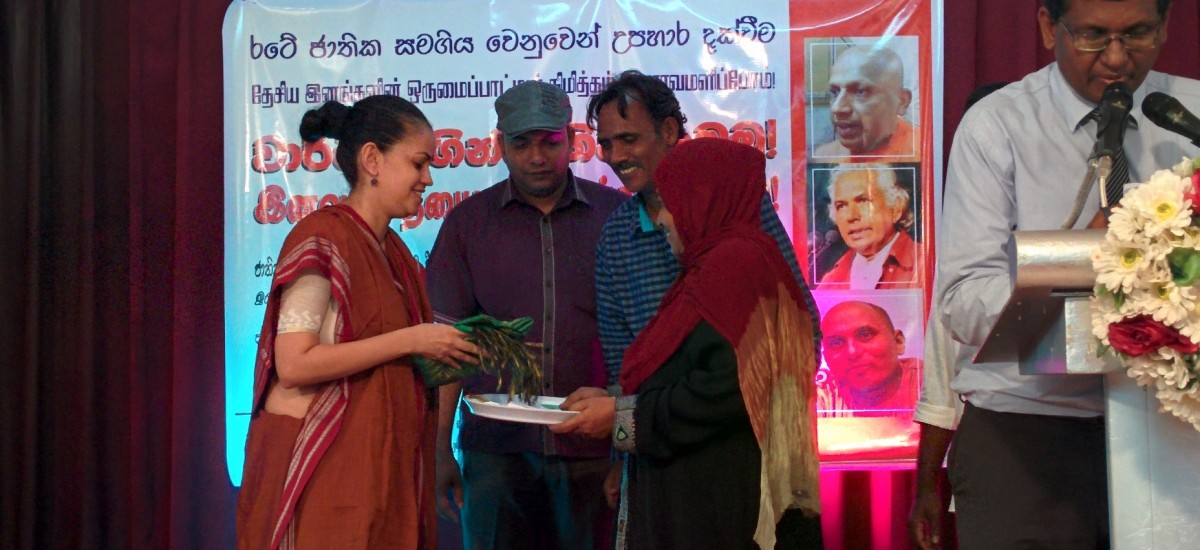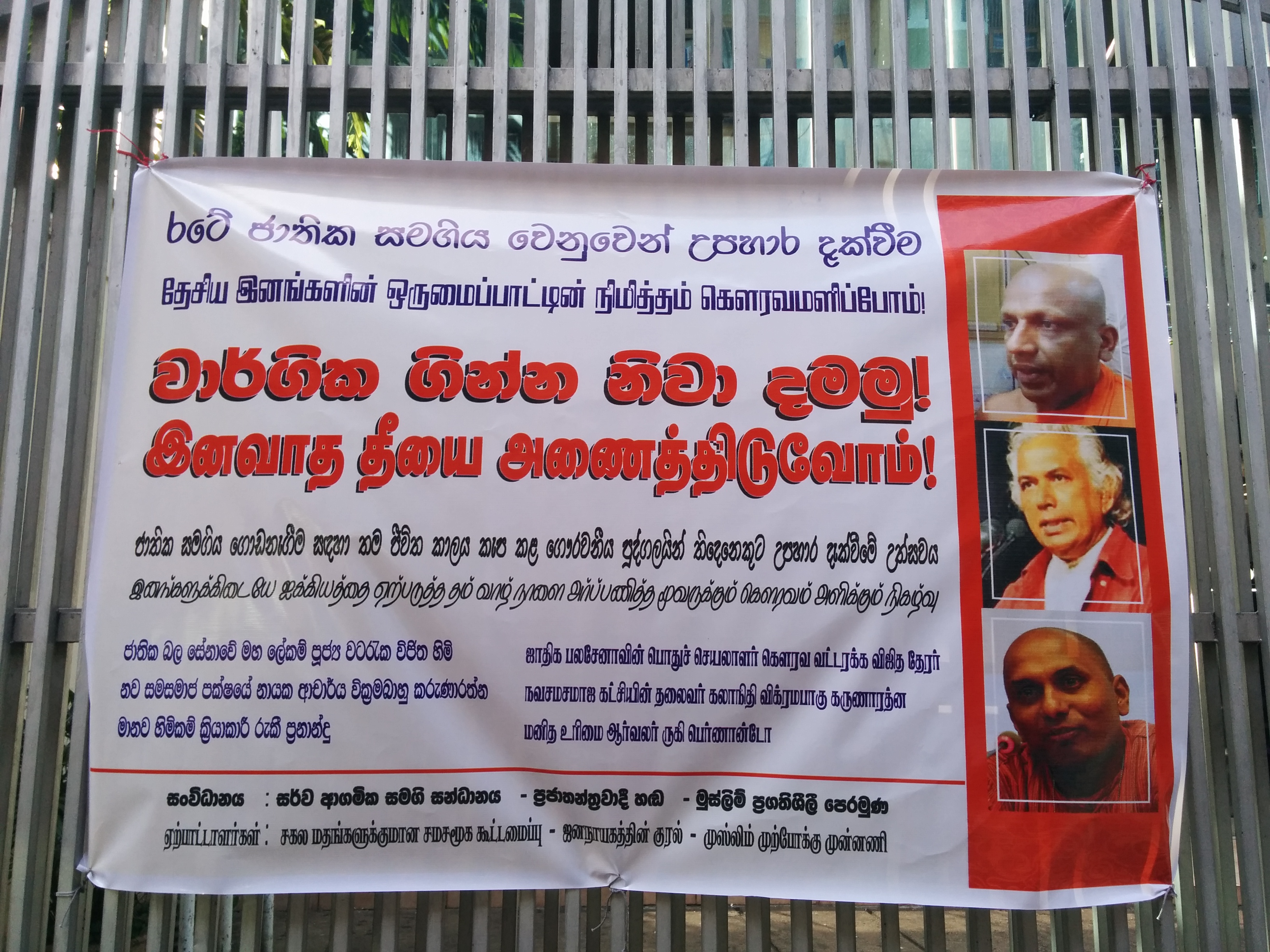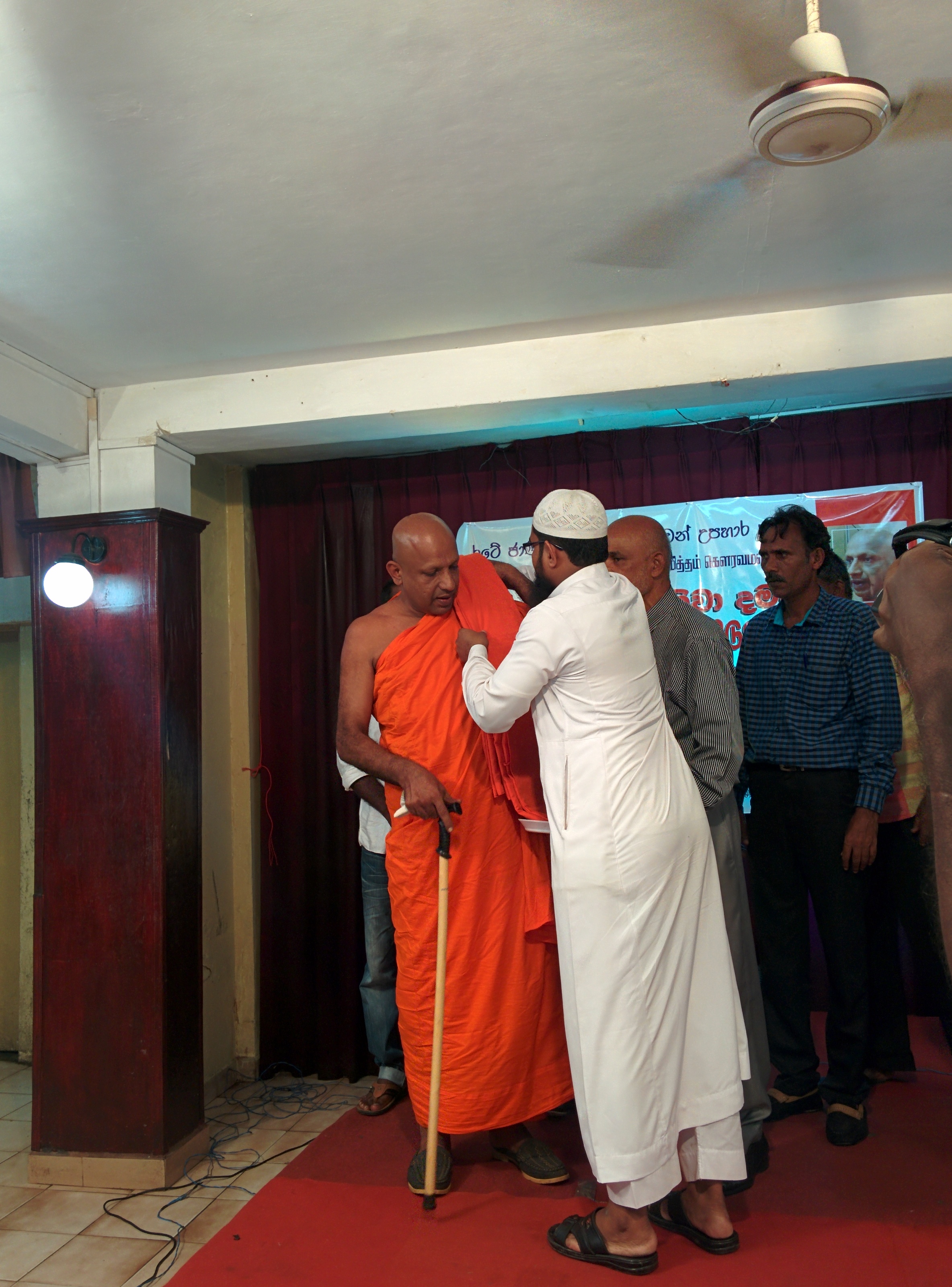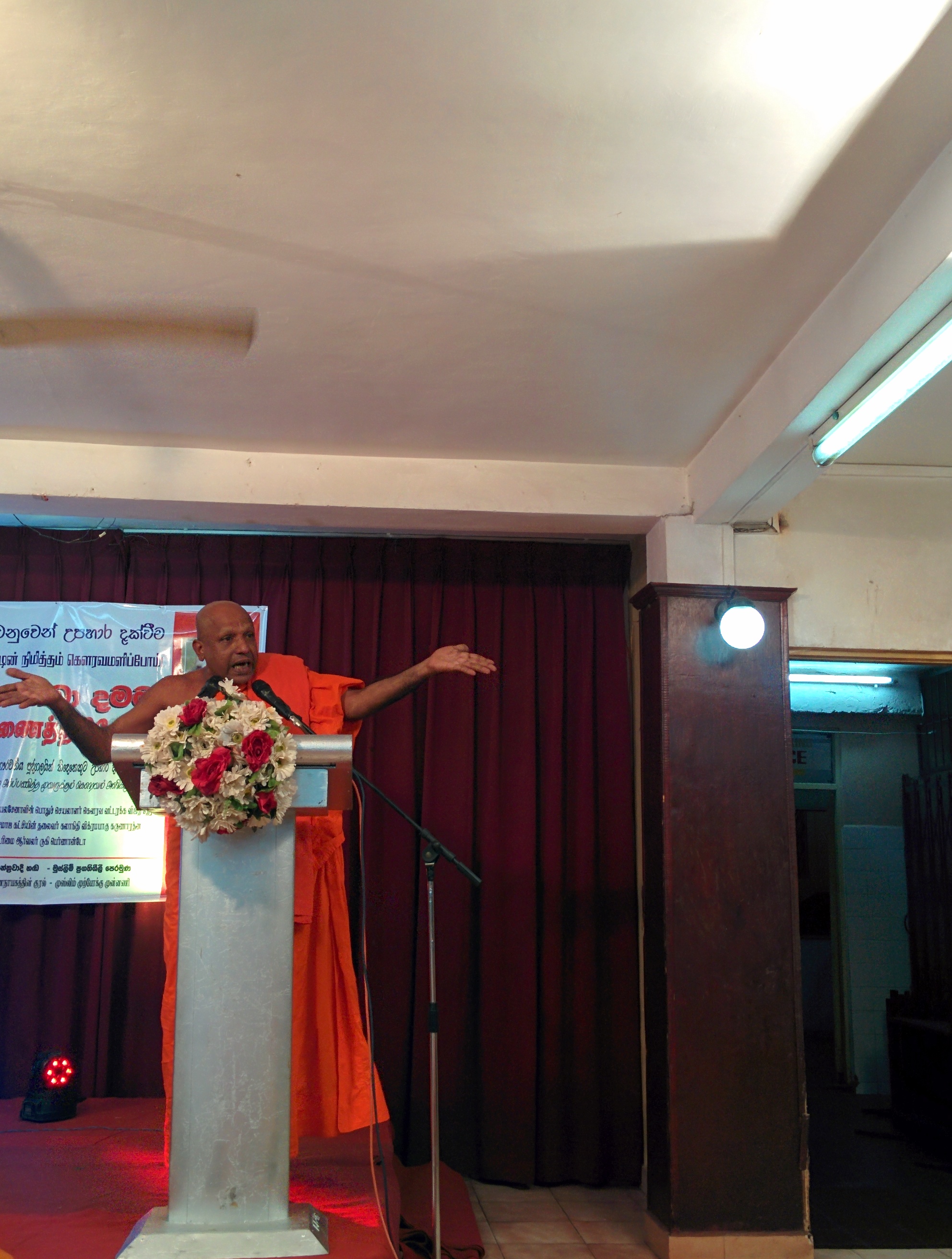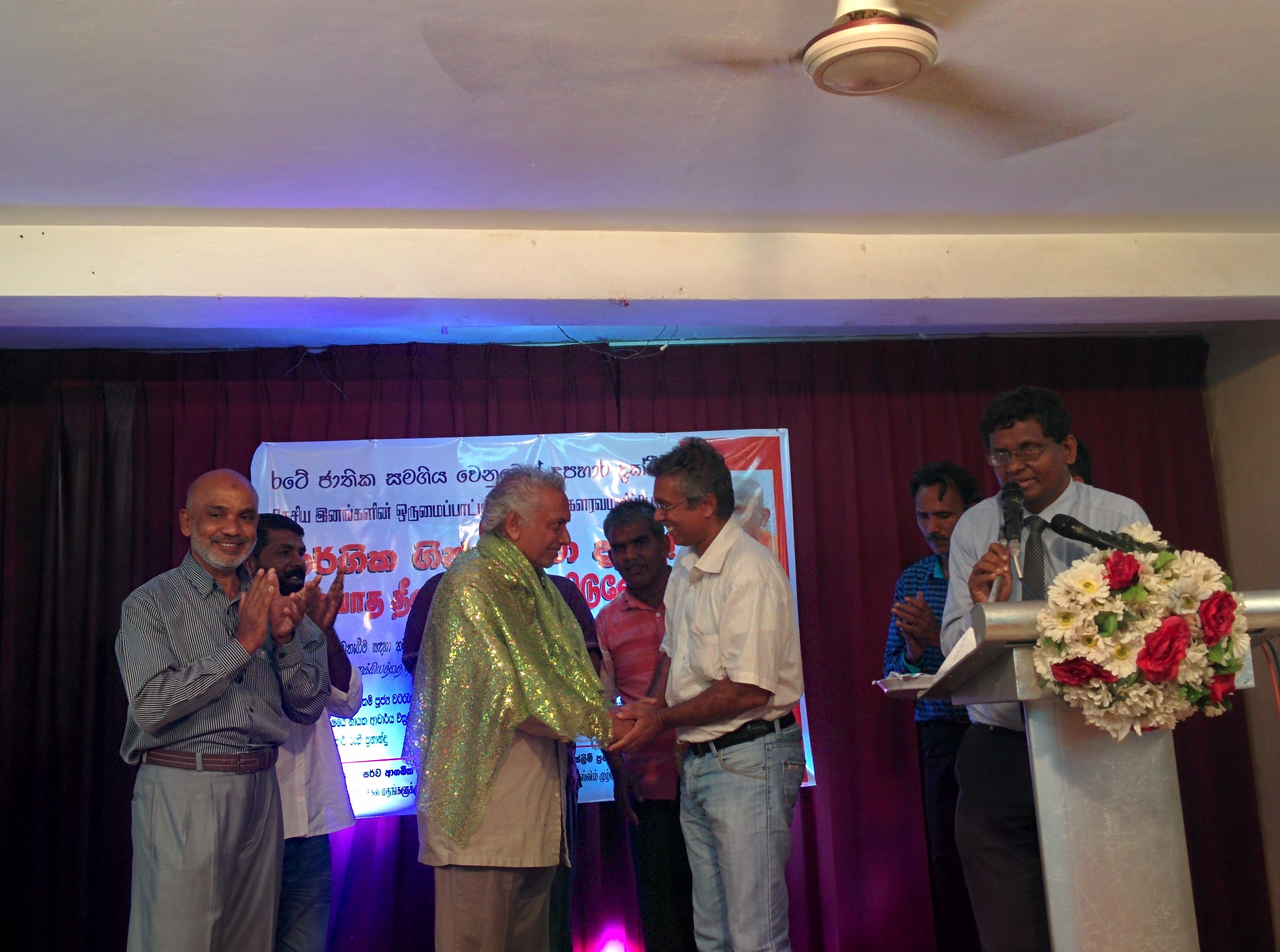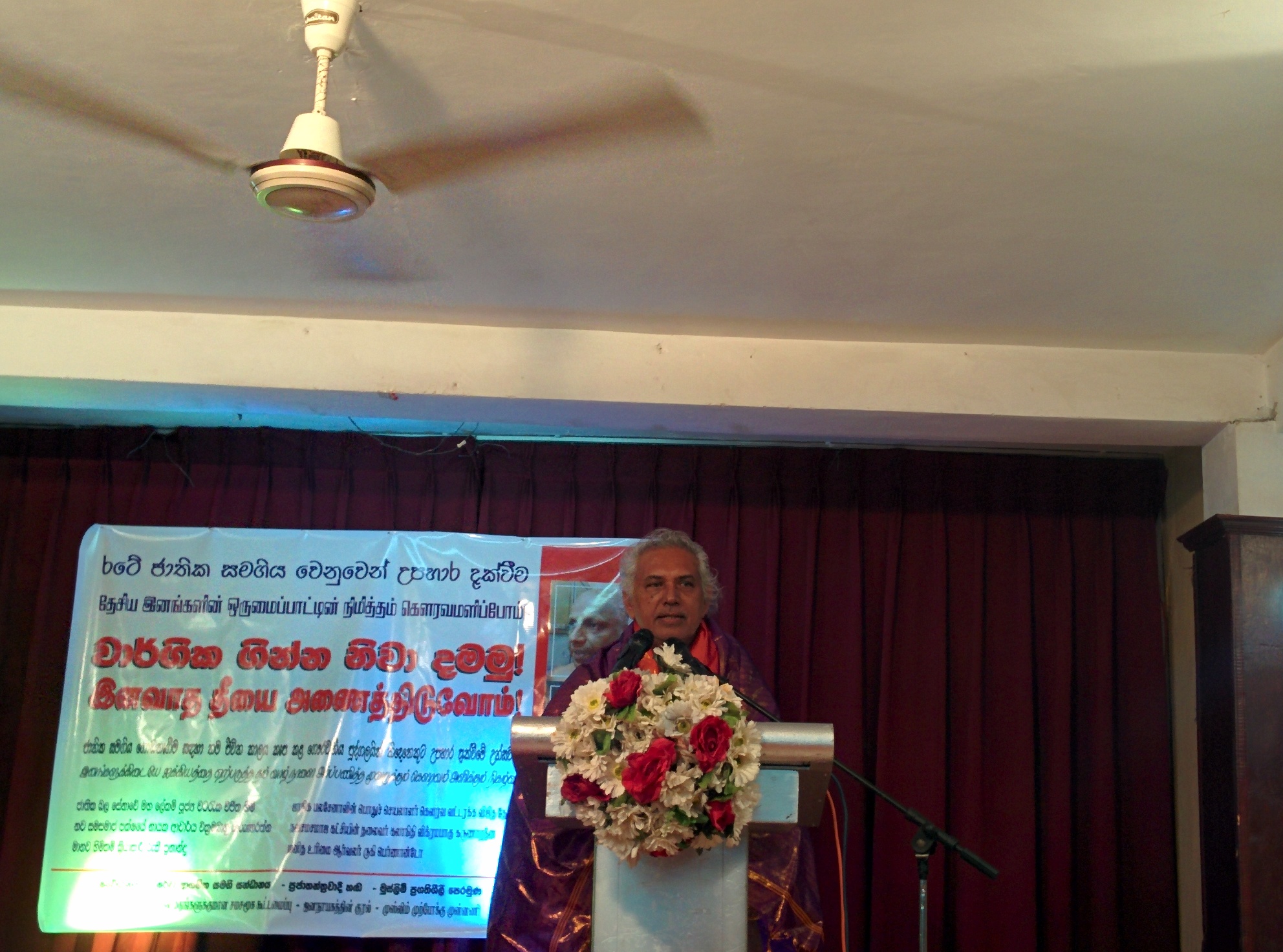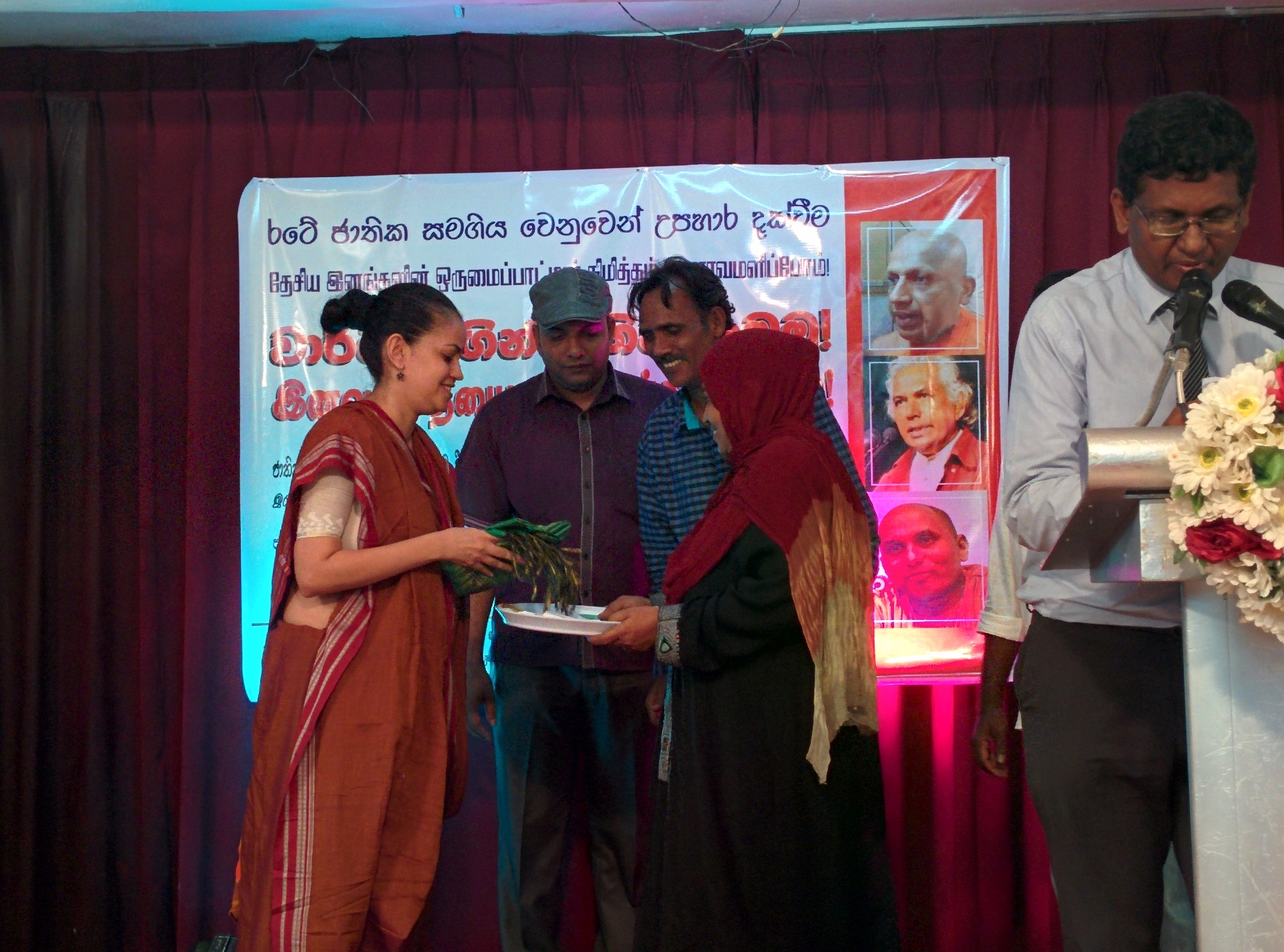Speech delivered on behalf of me by Marisa de Silva, on the occasion of the Islamic Centre Felicitation event, held in Maligawatte today.
Thank you for making me part of this celebration. Practically, felicitations are possible for a few, but many deserve felicitation. Felicitation for me means felicitation for many others I have worked with. Victims, their families, priests, sisters, lawyers, journalists and human rights defenders in general. They include those who have protected me and those who I have worked with and who have supported my work, including, by way of providing moral support. Many of them are also dear friends. Although I regret my inability to be here, it is perhaps appropriate that one of my dearest colleagues and friend will read this, as this belongs to her and others like her, as much as it does to me.
Usually, my talks are about the human rights situation in Sri Lanka, often depressing, but they also reflect hope. Or often on human rights laws, mechanisms, skills etc. But today, I will also share some personal reflections.
Today is a transitional moment for human rights and democracy in Sri Lanka. Not just a political transition, but a transition of our collective conscience & spirit. From benefitting, justifying and being silent in the face of repression & injustice, to a transition where we actively defy, resist and work to transform unjust and repressive situations. A transition where we refuse to let our spirits be captured or restricted, even if our bodies are captured. Where we would rather let our body die, rather than our soul.
A huge step in this transition was taken on 8th January by Sri Lankan people, including a majority of the numerically smaller ethnic and religious communities. This is when we voted out an authoritarian and corrupt family regime, which had captured much of the State, including legislature, judiciary, media, religious groups and even parts of civil society. More progress has been made to date, including the passing of the 19th Amendment. Therefore, we should fiercely protect the democratic space that we as Sri Lankans opened up for ourselves on the 8th of January.
But alarmingly, human rights violations have continued to be reported since then, and very little of the previous problems have been addressed. Many of you would be aware of these, and some, even victim to them. I have written and spoken about these elsewhere, so I won’t go into detail here. Much, much needs to be done if we are to truly be a democratic society that respects the human rights of all, individually and collectively. Among these are a political solution to the ethnic conflict, truth seeking and accountability for terrible abuses that have been committed, co-existence amongst different communities based on mutual respect and institutional and legal reforms. The development of a collective conscience on rights, dignity and the well-being of all persons and communities would be the key to our future.
Costs of human rights activism and rewards
Activism has come at a great cost. Some of you will know about the several times I have been interrogated in Colombo and in the North at the height of the war and even thereafter. I was threatened, followed, subjected to surveillance, stopped from going to places in the North and East, and labelled a terrorist supporter or a “Sinhala Kotiya” (Tiger) etc., Many of you may have heard of my being detained by the TID last year. A lesser number of you will know about the investigation that still continues against me under the PTA, and the restrictions imposed on my overseas travel and freedom of expression. But hardly anyone will know the emotional and personal costs I have had to bear. The loneliness and disillusionment when you’re abandoned by your loved ones and condemned even by persons and organizations you have worked with, and for whom you have risked and sacrificed much. This is also the case for many other human rights defenders, many who have suffered much more than me.
But activism has also been rewarding. When we have managed to protect one person’s life. When persons who we had supported to go into exile to protect their lives, returned to Sri Lanka. When we managed to obtain the release of persons detained unjustly. When interns who came to me with no human rights experience, continued with their activism. When people who underwent training use the knowledge and skills gained, to intensify activism. But for everyone we managed to help in some way, there were many we were unable to help. Or simply didn’t have energy and capacity to help. It has also been rewarding to experience the huge support and solidarity at times I faced serious security threats, and in a more broader sense, when the 19th Amendment was passed, when election results were announced on January 8th, and when the UN Human Rights Council initiated an investigation on allegations of serious human rights abuses during the war.
Some of my experiences, challenges, limitations
Much of my work has been to accompany and support victims and their families. In their homes, offices, police stations, checkpoints, mortuaries, courts, hospitals and even on the streets. Helping them to tell their stories. Telling their stories via various talks, interviews, articles and discussions. Putting them in touch with journalists, writers, film-makers, researchers, lawyers, diplomats and others who could potentially assist them. These are simple things, but often, that was all colleagues and I could offer, when we ourselves felt powerless and helpless.
Protecting persons whose lives are threatened, especially by providing safe accommodation, has been an important part of human rights activism in the last few years. We had to take risks, and even had to beg others to take risks. Sometime, we faced dilemmas, when there were indicators that some seeking protection for their families, may also have been involved in violence. Or that some that came seeking our help for overseas relocation were driven by economic or other factors, rather than real threats to their lives. I have been told that I was naïve and that my colleagues and I probably didn’t do enough to verify a case. But we erred on the side of caution when it came to matters of life and death.
One of the greatest challenges my colleagues and I faced was to persevere even when we felt we were getting nowhere – when the odds were stacked against us – both in terms of security and personally. That is why we continued to document stories of abuses, even when we realized there was no redress in sight, and victims, their families, and even we were tired. Perhaps even harder was to occasionally give up or withdraw, without giving up principles and longer term struggles, in the belief that “to fight and run away is to live to fight another day”.
Internationality of human rights
As this is being read, I’m probably on a flight from Paris to Geneva. This may sound glamorous to some, and others will say that I’m a traitor. In the last few years, Geneva has become a dirty word, a “sin city”. Geneva plays a central role in the international rights framework, which promotes a common and shared humanity over narrow geographical boundaries. Opportunities for people to express love, concern and support to others who are in trouble and are suffering, despite the distance. Is this is against our cultural values?
The international human rights system is about agreements of governments with one another about their responsibilities to people, what they should and should not do. And about monitoring the implementation of those agreements by mechanisms and persons appointed by the governments themselves, to remind, assist and sometimes persuade governments to abide by their agreements.
My travelling to Geneva and other places outside Sri Lanka is often to tell stories of suffering and tragedy sometimes to those who are skeptical, or just listen because they don’t want to be seen as not listening, but also to the many outside Sri Lanka, who listen to these stories with sensitivity and have always tried to support individual Sri Lankans in their times of desperate need, including myself. One wife of a disappeared journalist had told me that cards written by overseas students encourage her to continue her struggle for truth and justice. I have also worked with those who have written books, articles, reports and done films on Sri Lanka, and their efforts have been helpful to raise awareness about the broader situation in Sri Lanka, and to get more support for local efforts.
A challenge of internationality to me has been to be spend time, effort and money to support victims of violations, their families and human rights defenders who are not Sri Lankan. Recognizing that their situations may be as bad, if not worse than ours. Traveling to Geneva and other countries, speaking on panels with non-Sri Lankan human rights defenders, joining protests, signing petitions for human rights violations in other countries, conducting trainings for defenders from areas such as West Papua, Southern Thailand, Pakistan and Burma has helped sensitize me to some extent on this reality. Last year for instance, when Pakistani and others seeking asylum in Sri Lanka were arrested and deported, a personal friend and his family were amongst those living in fear of deportation.
Learning human rights activism
I have not pursued any academic studies on human rights, but have learnt everything I know, along the way, or whilst “on the job”. This is a learning I try to communicate in my many trainings for young human rights defenders, mostly from the North and East, and sometimes to those coming from other conflict affected regions in Asia as well. Activism can only be learnt the hard way – by direct involvement, not through reading, online searches, workshops or seminars. We need to get ourselves sweaty, dusty and perhaps even bloody. It’s like learning to swim and learning to drive can only be done by getting into the water or the vehicle.
Love, passion and human rights
Different people have different motivations for being involved in human rights. Mine is linked to my Christian faith, as I became involved in human rights activism through the Young Christian Students (YCS), and I continue to work closely with Christian groups on human rights to date. I must also state that my faith has strengthened my respect for other people’s faiths, and those who don’t belong to any religious groups. To fight for, and protect their rights. The Holy Bible tells us that God will judge us not by our religious rituals, but on how we treat others in distress. That our “neighbor” is the one who is in distress and needs our help, and that we should love our “neighbor” as much as we love ourselves and God. And importantly, the Bible makes this criteria all encompassing, without any reference to religion, ethnicity, caste, tribe or sexuality.
To me, involvement in human rights is about love and passion. If we love and care about someone, or a community, how can we not protect their rights? Like love, human rights activism also becomes meaningful when there’s passion, and not when it’s merely a job or a means to achieve an end. But human rights activism is not just about passion. Long, difficult and even boring work is also an essential part of human rights activism. One must use both their minds and their hearts, strategize and theorize issues, whilst also maintaining the very human element of the issues. Human rights activism requires a cool head and a warm heart.
For me, it’s been a passionate romance with human rights in which I did many things, achieved little, and lost a lot. But, I want to continue as long as I feel the passion, and I hope more and more will join us in that journey.

